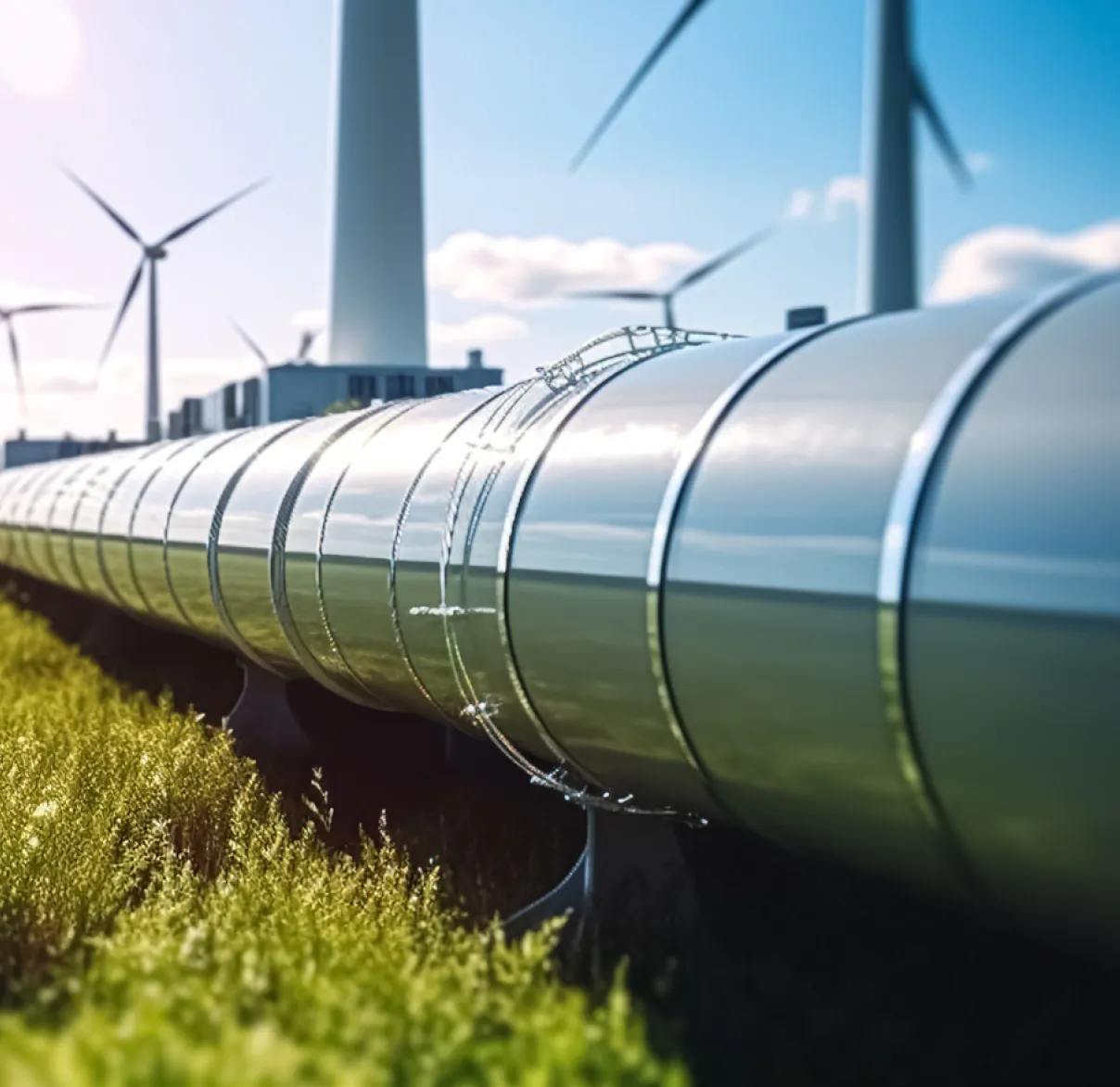Hydrogen’s role in the shift to a net-zero economy
<p>Hydrogen is all around us. It is the most abundant element in the universe — and it is therefore fitting, perhaps, that the hype around its potential to be a panacea in the transition to a world of net-zero carbon emissions has been difficult to escape.</p>

Article last updated 12 August 2025.
Hydrogen is all around us. It is the most abundant element in the universe — and it is therefore fitting, perhaps, that the hype around its potential to be a panacea in the transition to a world of net-zero carbon emissions has been difficult to escape.
Hydrogen has an energy density that is almost three times greater than that of diesel or gasoline. In theory, it can be produced almost anywhere, providing a source of energy that burns cleanly, releasing only water as a byproduct. What’s more, it can be transported, or used as a form of energy storage. For these reasons, it’s been touted as a silver bullet for the decarbonisation headaches posed by ‘hard to abate’ sectors such as aviation, shipping, steelmaking and cement production.
In 2017 Japan unveiled the world’s first national hydrogen plan, and in 2020 the EU followed suit, launching a hydrogen strategy of its own. The US Inflation Reduction Act (IRA) includes a 10-year tax credit of $3 per kilogram of green hydrogen produced, which is soon expected to be greater than the cost of production itself. Green hydrogen uses electrolysis, powered by renewable energy, to break down water into hydrogen and oxygen. The level of political will behind clean hydrogen is as strong as it has ever been.
The many different ways to produce hydrogen

Growing demand
Momentum from business, particularly from within the oil and gas industry, has been equally strong. In its recently published scenarios report, Shell forecasts hydrogen could meet up to 12% of final energy demand by 2070. The Hydrogen Council, a lobby group established in 2017 by the oil and gas majors, forecasts that as much as 22% of final demand could be met by hydrogen even earlier, by 2050.
Is there genuine cause for optimism that 30 years from now hydrogen could be an indispensable part of how we heat our homes and get to work, or are these forecasts simply pie in the sky? An assessment of most independent thought leadership on the issue would appear to suggest that the latter is the more likely conclusion.
Hydrogen accounts for a negligible proportion of global energy supply today. It is mostly used in petroleum refining and fertiliser production and is also used at very small scale in transport and utility markets. It can be produced in a number of ways, some far more harmful to the environment than others, with a spectrum of colours assigned to denote the different ways in which it can be produced.
Even within this already tiny contribution to global energy supply from hydrogen, green hydrogen accounts for very little. According to the latest figures from the International Energy Agency, only 0.7% of the 94 million tonnes of hydrogen produced globally in 2021 came from low emission production methods — almost all involving gas, with leaked emissions partially captured using carbon capture technologies (blue hydrogen).
That’s not to say this won’t change. Vast sums of investment into green hydrogen infrastructure have been promised by policymakers around the world and Goldman Sachs estimates that by 2050 the green hydrogen market in Europe alone could be worth €2.2 trillion per year. In 2022 the cost of grey hydrogen stood at around $1 per kg, compared to $2.5—6 per kg of green hydrogen, though BloombergNEF forecasts that this gap could narrow significantly in the coming years.
Still, we feel it would be prudent not to get swept up in the hydrogen hype just yet. A blue-sky scenario, where hydrogen would heat our homes, fuel most modes of transport, help balance electricity grids and decarbonise industry would require safe distribution of the gas in quantities that are unfathomable right now. While hydrogen will no doubt have a place in a clean energy future, many of the solutions to the decarbonisation puzzle we need are already available in the form of renewable electricity, direct electrification and batteries, and that’s where we feel attention should be directed.
At the end of 2022, the UK’s government’s Commons Science and Technology Select Committee concluded that hydrogen would have a “specific but limited” role in decarbonising sectors by 2050. That sounds about right.
You can find out more about how some companies are already using hydrogen to reduce carbon emissions in the production of concrete and steel in our report on Building a more sustainable future by visiting https://insight.rathbones.com/building-a-more-sustainable-future/




